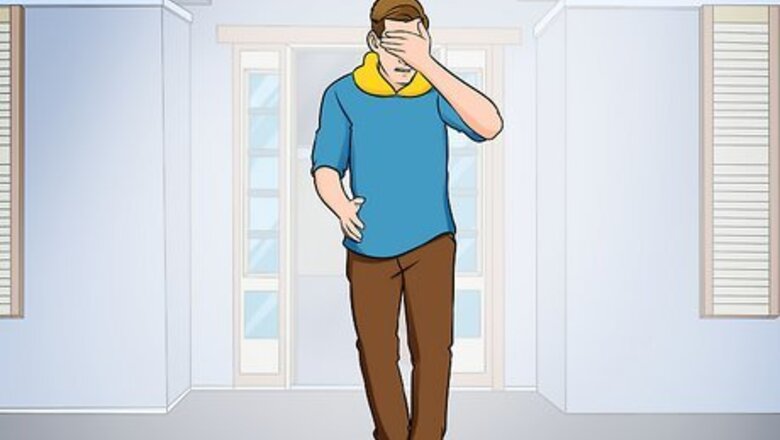
views
X
Trustworthy Source
PubMed Central
Journal archive from the U.S. National Institutes of Health
Go to source
Fortunately, there are things you can do right away to start relieving your discomfort. However, see your doctor if you notice any severe injuries, like abrasions on your eyes or blistered skin, or if you're having trouble breathing.
Get to fresh air as soon as possible.
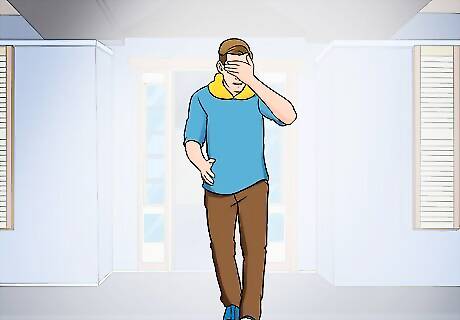
Leave the area to reduce your exposure. Once pepper spray is deployed, the oils will still be lingering in the air for a while, so it's best to get away from the vapor as quickly as you can. If you're outside, try to get to higher ground—the oils are heavier than air, so they'll start to sink. If you're inside, head outdoors right away. Don't panic—if there are other people around, don't push or shove them as you all leave the area. Just move to fresh air as quickly and safely as you can. If you're inside, open the doors and windows, then head outside to get fresh air.
Don't touch or rub your eyes.
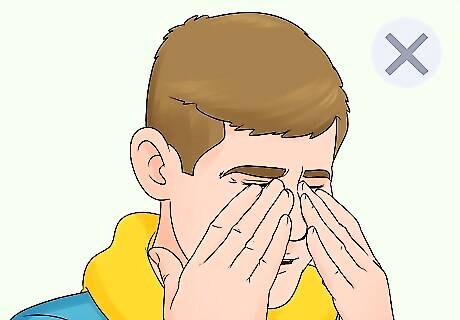
This will just spread the oil around. It might be hard, but keep your hands away from your face as much as possible after you've been sprayed. You might have pepper spray on your hands, causing you to get even more on your eyes, or you might pick up the spray from your face and spread it to other parts of your body.. In addition, rubbing your face or eyes increases the risk of having skin irritation or even scratches on your cornea. It might help if you blink your eyes rapidly to make them tear up. However, if you can't open your eyes, don't force them.
Take out your contact lenses if you wear them.
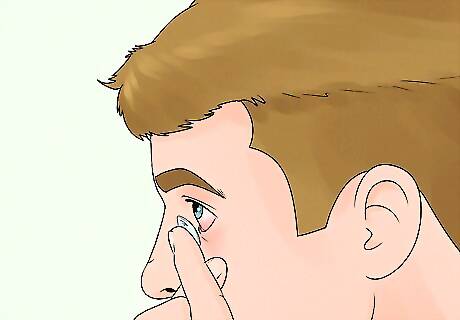
Contacts can trap the oils against your eyes. Although you should avoid touching your eyes as much as possible, make an exception if you have contacts in. If you leave them in, they'll trap the pepper spray against your eye, which could make the irritation worse. In addition, throw away your contacts—don't try to reuse them again, even if you wash them. Wash your hands with soap and water first to avoid getting more pepper spray in your eyes. If you think you might be in a situation where pepper spray could be used—like you're planning to go to a protest—it's best to wear glasses instead of contacts. Glasses can easily be washed, and they may even help deflect some of the spray from getting in your eyes.
Take off any clothing that was contaminated.
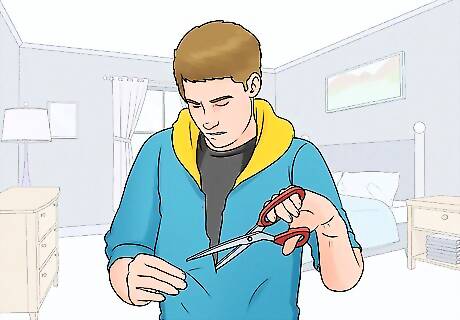
Consider cutting off clothes that you'd have to pull over your head. If you touch your clothes, you could spread even more pepper spray onto your skin. As soon as you can safely do so, take off your clothes and put them into a sealed plastic bag. If you're wearing a top that you can't unbutton, it's a good idea to cut it off of your body instead of pulling it over your head to avoid getting even more pepper spray into your eyes. If you want to keep your clothes, wash them separately from other clothes in cool or cold water. It's probably a good idea to wash them 2-3 times to make sure all of the pepper spray is rinsed out before you wear the clothing again. Also, take off any jewelry and wash it with soap and water before you wear it again. If you can't wash it, just throw it away. If you'll be attending a protest, consider wearing old clothes that you don't mind throwing out, just in case you get sprayed. Bring a change of clean clothes and a plastic bag to put your clothes in after you change.
Flush your eyes with water or saline as soon as you can.
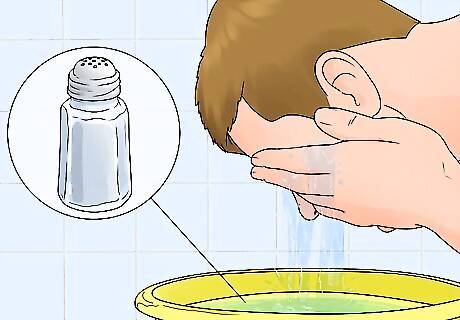
Rinse your eyes for at least 15 minutes. In most cases, it's best to use plain water to irrigate your eyes. Tilt your head back and pour the water into your eyes so it runs down the sides of your face—try not to let it run down over your nose and mouth to avoid more irritation. Do this as long as your eyes are still burning. If your skin is damaged, it may be more effective to use saline to rinse your eyes. If there are emergency responders on the scene, they'll have saline IV bags they can use to rinse your eyes. Cool water will probably feel best on your skin, but room-temperature water will work just as well. If you have artificial tears on hand, you can also try flushing your eyes with those.
Avoid using milk, soapy water, or antacids to rinse your eyes.
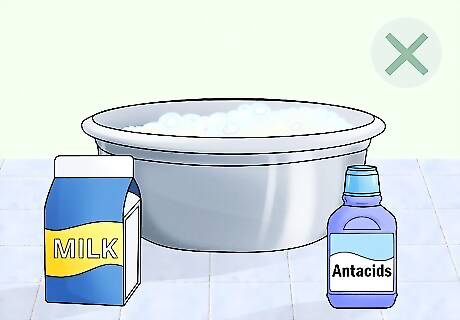
These are popular remedies, but water is just as effective. Some people recommend using milk, unflavored liquid antacids, or baby shampoo mixed with water to flush your eyes. However, there's no evidence that these work any better than plain water or saline solution. And since they're not sterile, they could potentially lead to a dangerous eye infection.
Rinse your skin with soapy water.
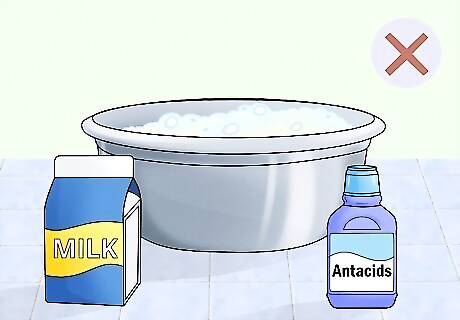
Dish detergent and baby shampoo work well. Since pepper spray is oil-based, the best way to remove the last traces is with a mild soapy solution. Carefully wash your face, including the skin around your eyes, but try not to let the soapy water get into your eyes, or you could recontaminate them. Wash your body, arms, and hands thoroughly, as well. Don't use an oil-based soap, as that won't be as effective.
Don't put any cream or lotion on your skin.
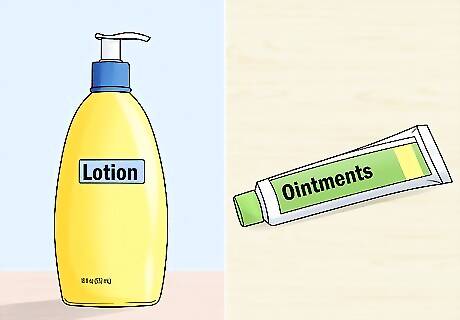
Ointments can actually trap the oil against your skin. It might seem tempting to put on a soothing cream after you rinse your eyes, but this could end up making the problem much worse. That's because there will likely still be some oil left on your skin from the pepper spray. If you put an ointment over that, it will trap that irritant against your skin, which could potentially lead to more serious problems like burns or blisters. It's better to just leave your clean, dry skin exposed to the fresh air until it doesn't feel irritated anymore.
Apply an ice pack to your eyes to cool them.
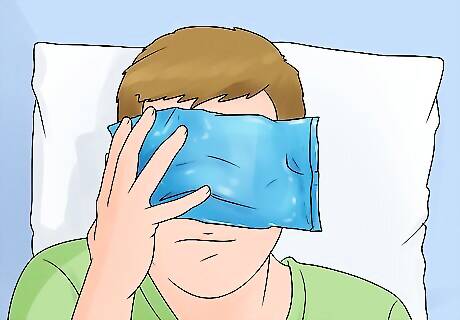
Ice can help soothe irritation after the fact. Although the most intense pain should be over in about 30 minutes or so, you might still feel a mild burning sensation for up to a few days after being hit with pepper spray. Apply a wrapped ice pack to the burning areas for 5-10 minutes to help ease your pain.
Talk to your doctor if you're still in severe pain after 45 minutes.
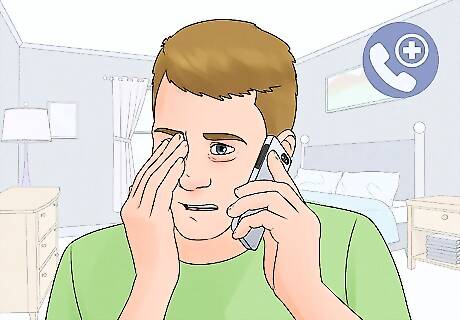
Rarely, pepper spray can lead to complications. Call your doctor if you experience problems like skin blistering, scratches on your eyes, or blurred vision after being exposed to pepper spray. Also, if you already have a breathing problem like COPD or asthma, you might have trouble breathing—call for emergency medical help if this is severe.












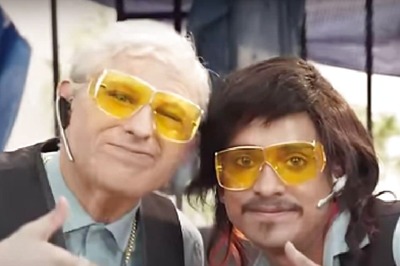




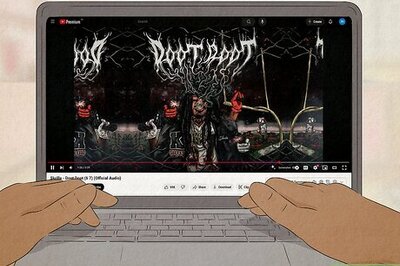


Comments
0 comment